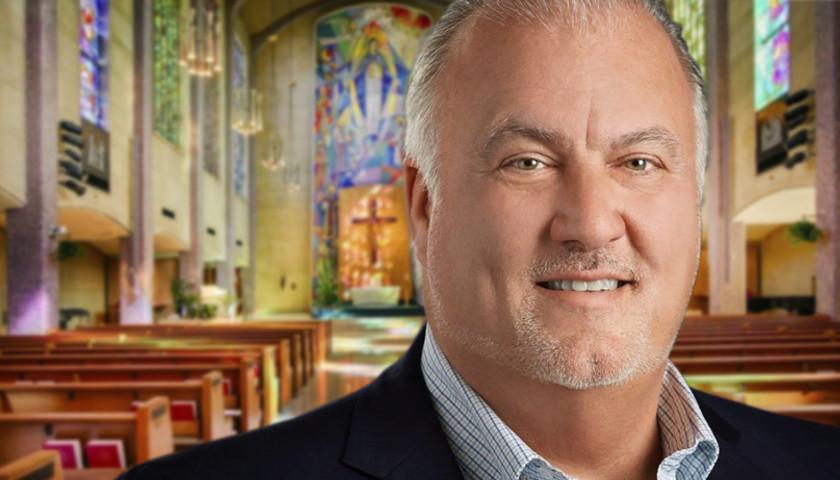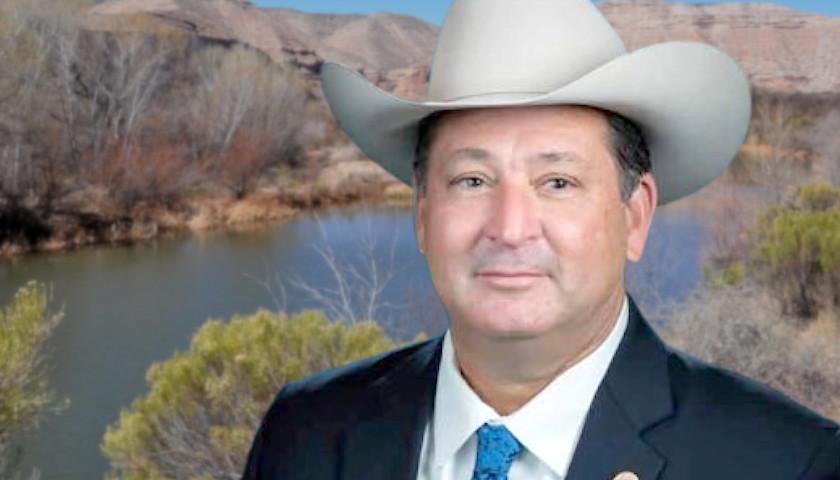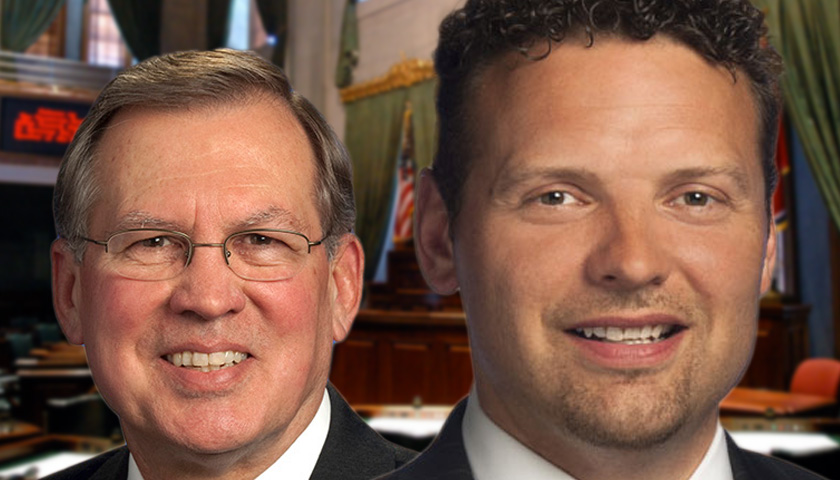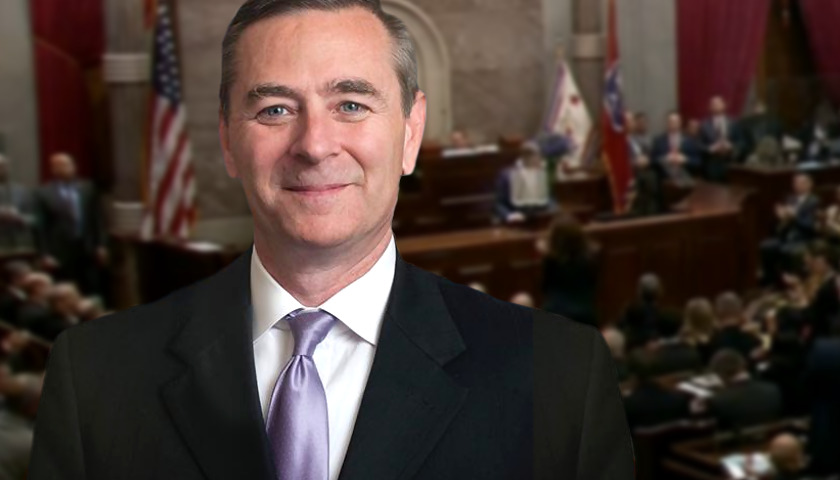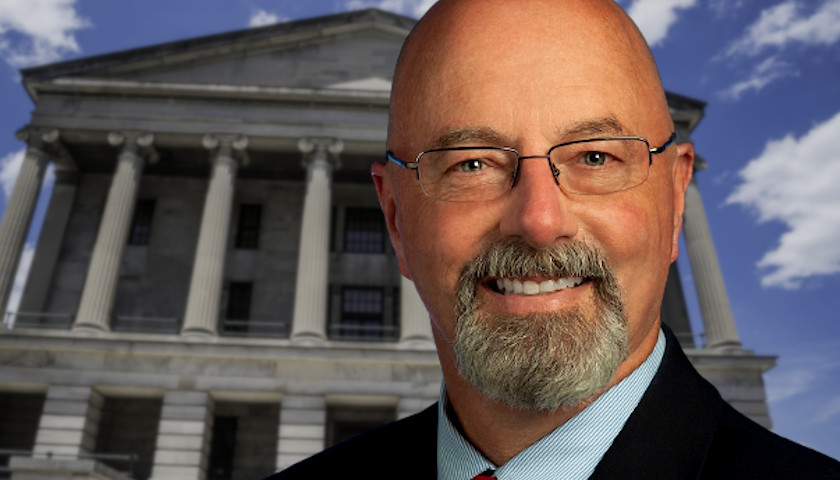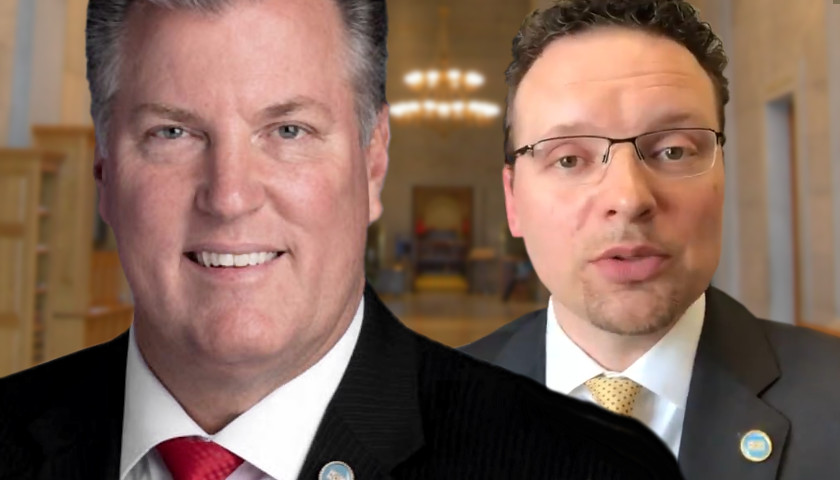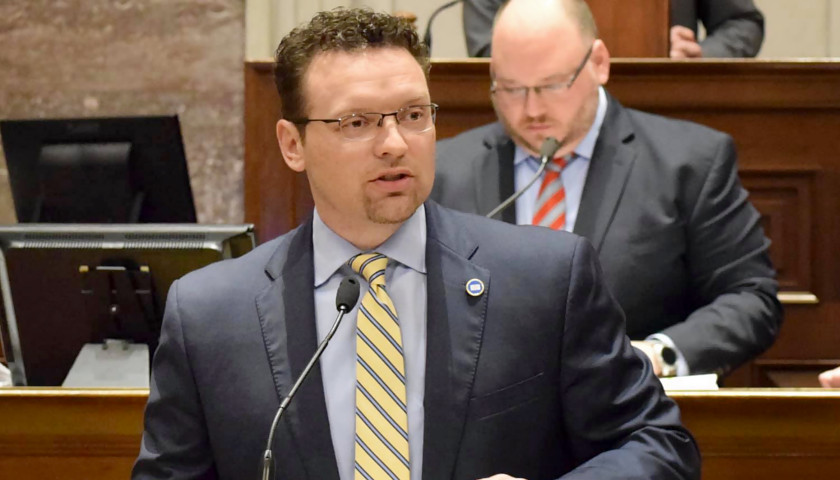New Mexico State Representatives Stefani Lord (R-22) and John Block (R-51) called for the impeachment of Democrat Gov. Michelle Lujan Grisham Saturday after she declared a public health emergency over gun violence.
Read the full storyTag: public health emergency
Wisconsin Constitutional Amendment Would Ban Places of Worship from Closing During States of Emergency
A proposed amendment to the Wisconsin constitution that would clarify that state and local officials “may not order the closure of or forbid gatherings in places of worship,” in response to a state of emergency declared at any level of government during a public health emergency, will go before a state Senate committee Tuesday.
State Republican lawmakers introduced the Senate Joint Resolution 54 in June in response to the 2020 COVID-19 shutdown order that restricted worship gatherings, even though the Wisconsin Supreme Court struck down that order.
Read the full storyArizona Attorney General Tells Rep. David Cook County Board Can Provide Water to Rio Verde Area
Arizona State Rep. David Cook (R-Globe) announced Tuesday that his letter asking Attorney General Kris Mayes (D) for her legal opinion on the Rio Verde Foothills (RVF) area water situation.
“I’m grateful to the Attorney General for this informative response clarifying a county board’s legal authority in this matter,” said Cook in an update emailed to the press. “I believe this could be immensely helpful in the effort to provide relief for Rio Verde residents who continue to struggle without a reliable point of access to water for their homes and families. I will continue working with the residents and other parties until a comprehensive solution is in place.”
Read the full storyPandemic Triggers 89 Percent Increase in U.S. Food Stamp Spending
Spending on food stamps has increased by $53.5 billion – an 89% increase – in the two pandemic years. By comparison, that’s how much the entire program cost in 2009 during the Great Recession.
Spending on the U.S. Supplemental Nutrition Assistance Program grew 88.5% from $60.3 billion in 2019 to $113.8 billion in 2021. Spending on the SNAP program had previously peaked at $79.8 billion in 2013 before declining for the next six years.
Read the full storyCrom’s Crommentary: The Ever-Expanding Medicaid Budget
Wednesday morning on The Tennessee Star Report, host Leahy welcomed the original all-star panelist Crom Carmichael to the studio for another edition of Crom’s Crommentary.
Read the full storyCommentary: Monkeypox Predominantly Affects Gay Men
Monkeypox has America’s public health establishment in a bit of an awkward spot. Health and Human Services Secretary Xavier Becerra last Thursday labeled monkeypox a public health emergency. “We’re prepared to take our response to the next level in addressing this virus, and we urge every American to take monkeypox seriously and to take responsibility to help us tackle this virus,” he said.
Read the full storyTennessee Senate Killed Bill Enabling Legislature to End States of Emergency, House Continues to Consider It
A bill enabling the Tennessee legislature to end public health-related states of emergency was deferred to summer study in the Senate. However, the bill lives on in the House – the representatives are scheduled to vote on the bill Tuesday afternoon.
State Senator Ferrell Haile (R-Gallatin) and State Representative Jason Zachary (R-Knoxville) sponsored the bill. Haile was the one who requested to move the bill to summer study. He cited that there were some issues that needed to be worked over, which he didn’t explain in detail.
Read the full storyTennessee General Assembly Passes Bill Prohibiting Local Government from Classifying Workers as ‘Nonessential’ – Governor and State Government Retain That Power
The Tennessee General Assembly determined that local governments can’t classify workers as “nonessential” – but the governor and state still can. The House passed an amended version of a bill, the “The Essential Workers Act,” on Tuesday that struck original language prohibiting the governor and state entities from classifying workers as “nonessential.”
Under the modified act, the governor and state may impose an executive order, ordinance, or resolution that identifies essential and nonessential businesses, trades, professions, or industries for the purpose of closing them. The Tennessee Star inquired with the sponsor, State Representative Brendan Ogles (R-Franklin) as to why they decided the governor and state entities should retain that authority. They didn’t respond by press time. The amendment also struck language that prohibited calling certain workers “essential.”
Read the full storyTennessee General Assembly Amends Bill to Maintain Health Commissioner, County Health Officers’ Emergency Rule, Quarantine and Closure Power
The General Assembly struck provisions removing exclusive health emergency-related powers from the health commissioner and county health officials. The bill originally proposed to create a commission to make decisions on whether or not to exercise those powers. The new commission would’ve included the governor, the speakers of the State House and Senate, each constitutional officer, and the commissioner of health – or, any designees selected by those officials.
Those provisions were dropped without explanation from either the House or Senate floor as to why. The Tennessee Star inquired with the sponsors what happened. The House sponsor, State Representative Glen Casada, (R-Franklin) divulged that the House Health Committee opposed it. He didn’t go into further detail in his statement to The Star.
Read the full storyTennessee Senate Pulls Back on Bill Removing Local Health Authority Powers, Rendering Them Advisory Bodies During Health Emergencies
A bill which proposed removing local health authorities’ powers during health emergencies was re-referred to the Senate Calendar Committee on Thursday. State Senator Mike Bell (R-Riceville) requested this action without explanation during the bill’s third and final hearing.
If passed, the bill would specify that county mayors have the authority to establish and implement health policies during county-wide health emergencies – not local health officials or bodies. Instead, all county health directors, health officers, and boards of health could only serve in an advisory capacity to the mayor.
Read the full storyBill to Exempt Houses of Worship from Emergency Closures Delayed
Final voting on a bill addressing government control over worship services during public emergencies, already heavily altered, will be delayed by one week for further potential changes. The bill’s sponsor, State Representative Rusty Grills (R-Newbern), indicated Monday that he would review the bill further to consider the concerns of Democratic State Representatives London Lamar (D-Memphis) and Harold Love, Jr. (D-Nashville). Lamar and Love raised concerns that governments couldn’t do enough to curb church activity during pandemics under the bill; Lamar argued that religious institutions would be fine if they were ordered to meet virtually.
The adopted amendment has already altered the bill entirely. The original provisions prohibited closures and limitations of churches or religious organizations, including their religious services or activities. In the amended version, the bill would only prohibit state and local governments and agencies from closing churches or religious organizations. It wouldn’t protect houses of worship from any governmental restrictions or limitations.
Read the full storyHouse Passes Bills Allowing County Mayors to Have Exclusive Authority in Health Emergencies and Teachers to Remove Problematic Students
The Tennessee House passed two bills expanding the authority of county mayors and teachers in exigent situations. Both were approved on Monday and are awaiting passage in the Senate.
Under HB0007, county-wide policy-making powers related to public health emergencies would be reserved solely for the county mayor in counties with particular population counts. The bill would only apply to Shelby, Davidson, Knox, Hamilton, Sullivan, and Madison counties. Those six counties would also see their county boards of health or county health committees demoted to advisory roles. State Representative Jason Zachary (R-Knoxville) introduced the bill last November. It passed 67-26.
Read the full storyBill to Reduce County Health Boards to Advisory Bodies Moves Through Tennessee House and Senate
Certain counties may see the roles of their health boards change in the event of another public health emergency. According to a bill making its way through the Tennessee General Assembly, county mayors should retain the exclusive authority to establish health-related mandates and regulations, while health boards and committees should only serve to advise them. The proposed measures would only apply to counties with certain population counts. Accordingly, the bill would affect Shelby, Knox, Davidson, Hamilton, Sullivan, and Madison counties.
State Representative Jason Zachary (R-Knoxville) introduced the bill in November, as Chris Butler with The Tennessee Star reported previously. In a press release, Zachary explained that only elected representatives are accountable to those they serve – therefore, only elected representatives should have the final say in public health emergencies.
Read the full story

